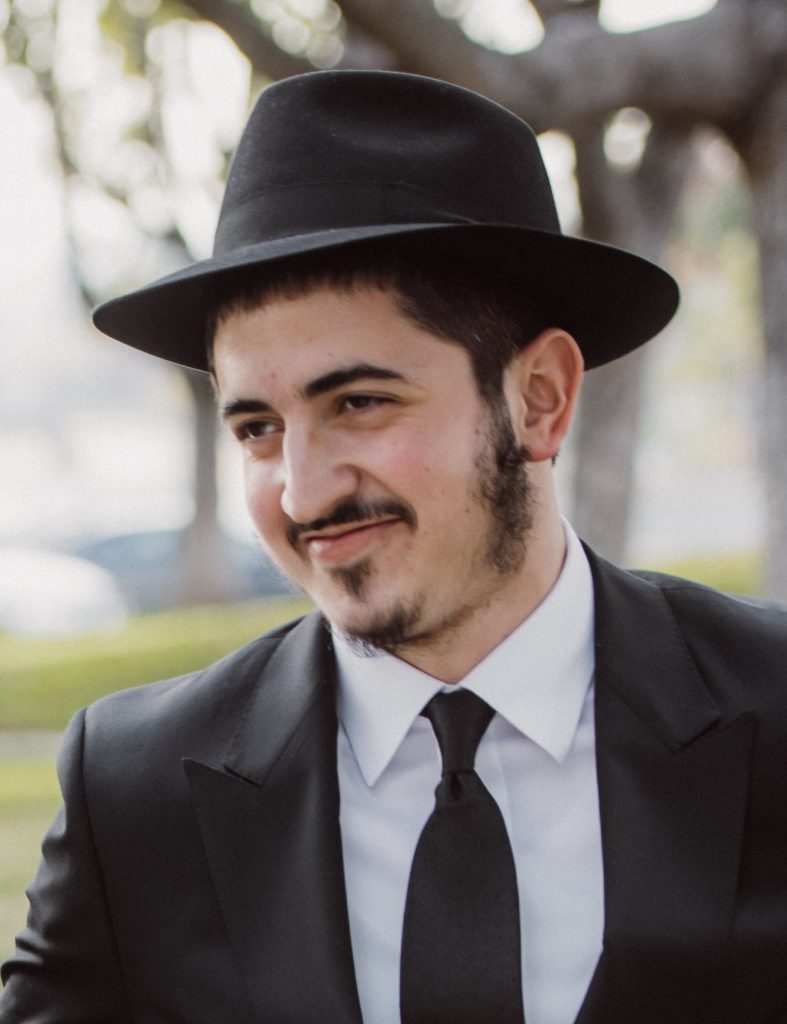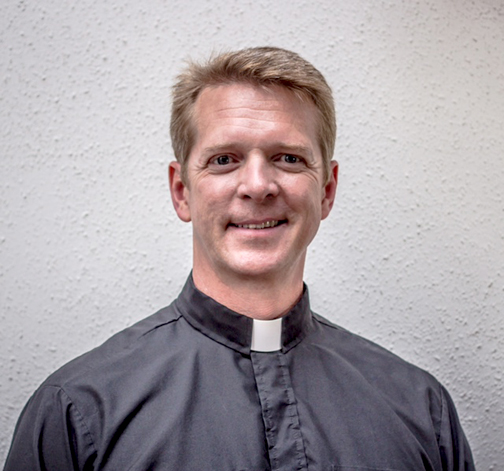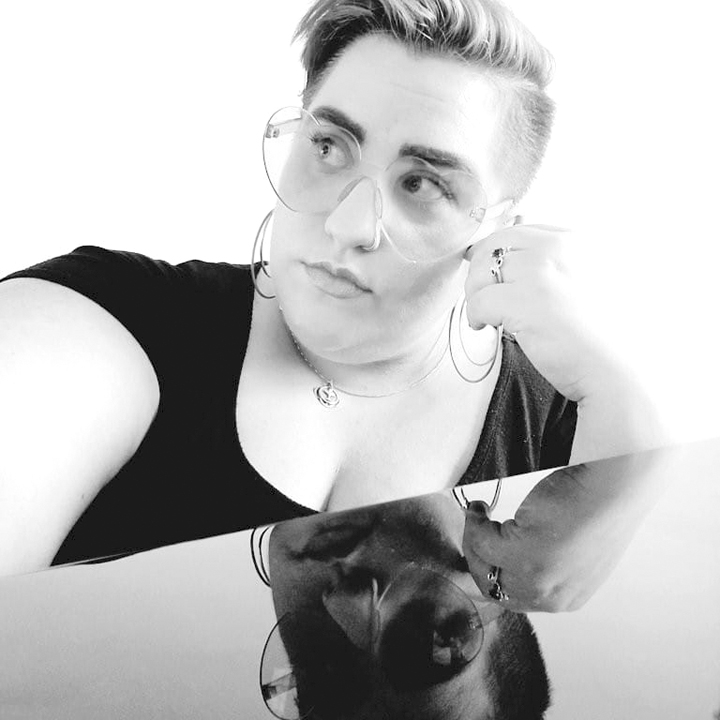Question: I have a stepson I’ve known since he was 3 years old. He is now 13. A few years ago, and with the help of family counseling, his mom and I agreed that she’ll be the disciplinarian in our home and I would back up what she has decided to tell him. He can be very difficult and, after one argument with his mom, he said he wanted to live full time with his dad. We told him if he decides to do that, it would be until he’s 18. That ended that.
My problem is I become very angry at some of the things he does but I keep quiet. I also know that he is emotionally conflicted. When he visits his dad on weekends, he’s supposed to “be seen and not heard.” When he is with us, we think it’s best for him to interact with the family but he still spends a lot of time in his room. He is in counseling but we don’t see much of a change in his behavior.
Is there a spiritual solution to this family problem? My wife and I don’t think he’s happy. ~ Worried Stepdad
Dear Worried Stepdad,
The teenage years are some of the most turbulent times in a person’s life. The gradual growth from dependence to independence is a time of finding an identity that builds upon the experiences of life that a person has had. Living in a split household situation increases the challenges of adolescence and brings in additional elements to the process. It sounds as if your stepson has to “put on” different identities depending on which household he is in, and that will also add to the difficulty of the process of development.
I commend you on the steps you have already taken to support your stepson through the years. Introducing the services of a therapist is a strong step in showing how much you care and are willing to participate in the process yourself to discover the best way to move forward. I would continue what you have been doing and realize that it will take time to work through the many realities of the situation.
What I can advise on a spiritual level is to practice intentional listening and presence. Jesus sat with people and listened to their stories. In the Biblical text we often think that He more often spoke to those around Him, but if we look a bit deeper we see that He enters into conversation with those around to show that they are valued and worthwhile. This is something that each of us wants – to be noticed, to be of value. Maybe as a way to begin this you might approach your stepson in his natural environment (at this point, his room) and ask him about his day. Let him speak (or keep silent) and just be there with him. Let him know that you are there to listen to him and that you understand that it is a difficult time in life. Make him the focus of your attention – it may be for five minutes or end up being a good amount of time. Let him be in control to the conversation and the time. Give him an opportunity to practice a bit of independence that will hopefully blossom into a realization of interdependence. Sitting and listening.
Pastor Scott Peterson
pastor@lcifoothills.org
Dear Worried Stepdad,
I hear your concern about your stepson’s mood and what you see as isolating behaviors. It sounds like this is a pretty complicated situation with a long history. The history of having been to family counseling speaks to a real desire to help and heal as a family, and I think leaning into that sort of impulse is really important for any family.
Though I don’t know enough to speak to what your stepson is currently going through, I think we can all remember that 13 is a really difficult age no matter what situation you find yourself in. Being 13 at this moment in history and living in houses with such different standards of behavior sounds like it would be a double dose of difficulty. It’s really normal for a teenager to want to spend time alone, but I trust your assessment of his mood, so I’m wondering if maybe your stepson could use one-on-one counseling as a space to explore his feelings and develop coping strategies that will help him throughout his life.
You asked specifically for a spiritual solution and, while there’s no quick and easy “say this and then it will be fixed” answer from my perspective, I can see a couple of places where spirituality could be helpful. A regular spiritual practice – whether it’s prayer, meditation, study of a text, journaling or participation in a faith community – can help ground us against the intense emotions that can arise in our interpersonal lives and make decisions from a place of connection with the Divine. I’d encourage you and your wife – but you particularly since you speak about getting angry – to dedicate yourselves to some sort of regular practice of spirituality and to give your stepson the option of participating in a spiritually grounding activity of his choosing as well.
Wishing you all healing and peace.
Blessings,
Rev. KC Slack
revkc@uuverdugo.org
Question: Through DNA testing, I just found out my dad is not my biological dad, although his name is on my birth certificate. I’m now married with two children. My husband thinks I should bring this up with Mom and Dad, but I don’t want to rock the boat. [My husband] says he’ll honor my decision.
Dad has been there through thick and thin for me. I seriously wish I had never found this out. “The truth” doesn’t really matter as far as I’m concerned. Am I wrong in not letting my parents know what I found out?
~ Loving Daughter
Dear Loving Daughter,
I believe there are no coincidences and that everything happens for not just a reason, but for a good reason. This truth has been revealed to you at this time for a good reason. Perhaps if you were to find out earlier in your life you and your parents would not have been ready to talk about it. Now you know the truth and you cannot un-ring the bell. This could be a wonderful opportunity to deepen your relationship with your parents.
I know that there is a spiritual solution to every issue and the answers come when you seek divine guidance found in the quietness of prayer. My heart believes that the best-lived life is one that comes from a place of authenticity, one in which you can speak your mind truthfully and respectfully and face whatever circumstances unfold.
I understand that you do not want to “rock the boat” by telling your parents you have found out that your father is not your biological dad. Your parents clearly must have had the same belief, or they would have told you as well. I wonder if you have considered what not saying something to your parents will cause? To live a truly empowered life requires that we face the truth. Withholding the truth means there is an area of your life that you must close off when you spend time your parents and that secret will be in your heart every time you interact.
Only you can truly know the best way to proceed. Pray and listen to your heart and inner guidance. You will know the best way to proceed and it will be right for you.
In Light,
Rev. Mary Morgan
mormari@aol.com
Dear Loving Daughter,
Firstly, I’m very sorry to read about your distress in finding out your father is not your biological father. It’s certainly not an easy thing to learn, especially in the manner in which you have learned it.
It seems to me that the crux of your question is whether it is “right” to keep these findings hidden from your parents in order to prevent them from anguish. Or is it “wrong” to keep things such as these hidden from your parents?
Let me draw your attention to a few interesting stories of the Torah (Bible) concerning righteous men bending truths for the greater good:
Abraham and Sarah: When Abraham and Sarah were traveling into the land of Egypt, Abraham made Sarah swear that if anyone asked about their relationship “please say that you are my sister.” The reason for this was Sarah’s beauty. Abraham was fearful that had the truth of their marriage been known, the Egyptians would have had Abraham killed in order to make Sarah their own.
Jacob and Isaac: Jacob and Esau were twin brothers. Esau was the older twin, deserving of the firstborn son’s rights, while Jacob was his younger brother. The Torah describes that Esau had once returned from hunting and was famished. Jacob – always the businessman – said: “If I will give you from my soup, will you sell me your birthright?” Desperate, Esau agreed. When the time came for Isaac, their father, to give his blessings, he called Esau – not knowing that the birthright had already been sold. As Esau is out preparing a meal for Isaac before the blessings would be given, Jacob puts on coats of fur and proclaims to Isaac, “I am Esau your firstborn!” (Isaac had gone blind in his old age. The way he’d discern which son was in front of him was with his sense of touch – Esau the hairy son, while Jacob the smooth-skinned son. Jacob donned the fur to deceive Isaac into thinking he was the hairy son – Esau).
Aaron and the nation of Israel: When Aaron passed, the Jewish people wept even more than when Moses died. The Torah explains that Aaron was so loved by the people because he was a peacemaker. Peace between friends, and peace between husband and wife. His strategy was to tell each side that the other party related to him privately how they regretted their actions and wished to make peace. Although Aaron was told no such thing, he pretended that he was so told in order to bring them together.
Being honest is one of the fundamental laws of the Bible. It is even one of the Ten Commandments engraved into the tablets! How is it possible for such righteous people such as Abraham, Jacob and Aaron to bend such truth? The commentaries explain that all three of these lies were “white lies” (Abraham was in fact related to Sarah by blood as Sarah was Abraham’s niece, which in those times could be referred to as “sister.” The Torah tells us Jacob had purchased the birthright and was also conceived first – thereby not lying in claiming he is the firstborn. Aaron’s claim that the other party wanted to make peace wasn’t entirely false. Deep inside everyone’s soul they want to do the right thing, so deep down everyone wants to make peace). Sometimes one must white lie for the greater good.
Based on all of this I humbly believe that in your situation not only is it not “wrong” to hide these findings from your parents but by hiding it you are honoring them. Here you mustn’t even “white lie” to keep them from distress, you merely have to not share something you’ve found.

rabbi@cvchabad.org



